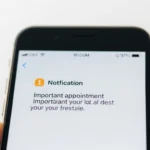
As we get older, keeping our brains sharp matters—big time.
The cool part? Science says our brains can still grow and adapt.
With the right activities, seniors can boost memory, focus, and problem-solving.
This guide breaks down smart, research-backed ways to train your brain daily—no lab coat required, just a little effort and maybe fewer Netflix marathons.
Mental Exercises and Brain Training Games
Wanna keep your brain on point as you age? Think of it like hitting the gym—but for your mind.
The secret sauce? Games. Puzzles. Even video games (yes, seriously). Here’s how they help and which ones are worth your time.
Traditional puzzles and games
Crosswords = word power
Crossword puzzles work your language muscle.
You dig into your memory to find the right word, then link it with clues. This strengthens your vocab, verbal thinking, and keeps your memory sharp.
Sudoku = logic lifting
Sudoku and number puzzles make you think in patterns.
You’ve gotta focus, plan moves, and use memory to figure out what fits where. It’s like math and chess had a baby.
Chess & checkers = strategy mode
These aren’t just for rainy afternoons at the park.
They fire up your decision-making, memory, and attention. Playing chess or checkers is like solving a brain-level boss battle—minus the explosions.
Digital brain training platforms
Apps like Lumosity and BrainHQ offer mini-games that test memory, speed, focus, and logic.
The cool part? They adjust the difficulty based on how you’re doing, so it stays challenging without frying your brain.
You can also track your progress over time and play on your phone, tablet, or laptop.
But don’t ditch your puzzles just yet—science says these apps might help, but they’re not magic pills.
Use them with other brain activities, not instead.
Video games
Yup. Grandma can totally fire up a controller.
Studies show seniors who play certain video games (especially 3D or adventure-style games) improve memory and focus—even after just two weeks.
Video games force your brain to multitask:
- Spot enemies
- Navigate 3D space
- Make quick choices
- Switch tasks fast
That’s a lot of mental hustle, and it transfers to real-life stuff like driving, remembering names, or cooking dinner without forgetting the stove.

Physical Activities That Boost Brain Health
Want to keep your brain firing as you age? Don’t just sit there—literally.
Moving your body helps your brain work better. Think of exercise like fuel for your mind.
Here’s how different types of workouts give your brain a boost:
Cardio
Walking, biking, swimming—anything that gets your heart rate up helps pump more blood to your brain.
That means more oxygen, more nutrients, and more brain cell growth.
Even just a 30-minute walk can help with memory, focus, and decision-making.
Yoga & Tai Chi
These are slow, controlled workouts that mix movement, breathing, and focus.
Great for balance and flexibility, but also for clearing brain fog.
They lower stress (which messes with memory), help you focus, and improve your mood. Basically, it’s mindfulness with a side of gentle stretching.
Strength training
Lifting weights or doing resistance bands isn’t just about building biceps. It also boosts your attention span and helps your brain stay organized (hello, executive function).
Studies show older adults who lift stuff—safely—stay sharper longer.
Social Engagement and Cognitive Health
Hanging out with people isn’t just fun—it’s brain fuel. Staying social keeps your mind active, sharp, and way less lonely.
Here’s how different social stuff gives your brain a workout:
Game time
Playing social games like bingo, cards, or trivia isn’t just about winning snacks.
You’re remembering rules, paying attention, making fast choices, and sometimes even doing math on the fly (ugh, math).
Plus, it’s fun—and fun means less stress, which helps your brain chill and function better.
Group activities
Joining book clubs, discussion groups, or any group where people talk ideas forces your brain to listen, think, and respond.
You flex your memory (what did the main character do again?), practice clear speech, and connect with others. It’s like a workout, but with words.
Mix ages, mix benefits
Hanging with kids or teens—whether through mentoring, tutoring, or just telling them stories—makes you explain things simply and clearly.
That taps into memory, focus, and adaptability.
Teaching someone how to use a rotary phone? Brain points. Explaining why TikTok dances confuse you? Bonus round.
Volunteer work
Helping out in your community gives you structure, purpose, and—surprise—new stuff to learn.
Whether you’re sorting donations, mentoring students, or helping with events, you’re solving problems, talking to people, and staying mentally active.
It’s a win for your brain and your mood.

Learning New Skills and Hobbies
Wanna keep your brain in beast mode as you age? Learn something new.
Not just chatting or chilling—but actually picking up new skills that make your brain work hard.
Research backs it up: older adults who learned things like quilting or digital photography showed better memory than those who just hung out.
Here’s how to level up your brain with new hobbies:
Play that funky music
Picking up a musical instrument works your brain like a team sport.
Reading music? That’s visual processing.
Moving your fingers? That’s coordination. Keeping rhythm? That’s focus and timing.
It’s a full-brain workout, and it’s way more fun than lifting dumbbells.
Tech it out
Learning how to use a computer, phone, or tablet builds digital skills and brain power.
You’re solving problems (“Where’s the settings button again?”), remembering steps, and staying connected.
Plus, you unlock YouTube tutorials, online classes, and those weird-but-fun cat videos.
Make stuff
Painting, drawing, writing, or doing crafts gives your brain a creative boost.
You plan things out, focus on details, and express yourself.
You also use your hands, which helps your fine motor skills.
Whether it’s doodling or writing your life story, you’re helping your brain stay flexible.
Creating an Effective Cognitive Exercise Routine
Want your brain to stay sharp? You’ve gotta train it—like you’d train for a race or try to beat a video game boss.
No shortcuts. Just daily effort, smart habits, and a little mix-and-match.
Here’s how to do it right:
Show up every day
Your brain loves consistency.
Set aside 20–30 minutes a day for something that makes you think—puzzles, memory games, whatever.
Doing it daily matters more than going all-in once a week. It’s like brushing your teeth but for your brain (and less minty).
Keep it fresh
Don’t just do crosswords every day until you’re bored out of your mind.
Mix it up—word games, number puzzles, strategy games, creative stuff.
Try new things and slowly level up the difficulty.
You want your brain to say, “Whoa, that was hard,” not “I’ve done this a thousand times.”
Mix mind, body, and people
The best brain gains happen when you combine mental workouts with physical activity and social time.
One big study followed over 2,000 people ages 60 to 79 and found that doing mental tasks, light workouts, and eating well helped memory and thinking.
So yeah, go for a walk, chat with a friend, then do a puzzle. That’s the power combo.

Final Take: Keep Your Brain in the Game
Want a sharper brain as you age? Do a little of everything—mental games, physical movement, and social hangouts.
Whether you’re doing crosswords, learning guitar, or just teaching your grandkid how to use a toaster, the trick is to keep it fun and challenging.
Start with stuff you like. Then slowly level up.
It’s not instant magic—it takes time and consistency. But stick with it, and your brain stays strong, focused, and ready for whatever life throws at you (even if it’s just another group chat full of emojis).



